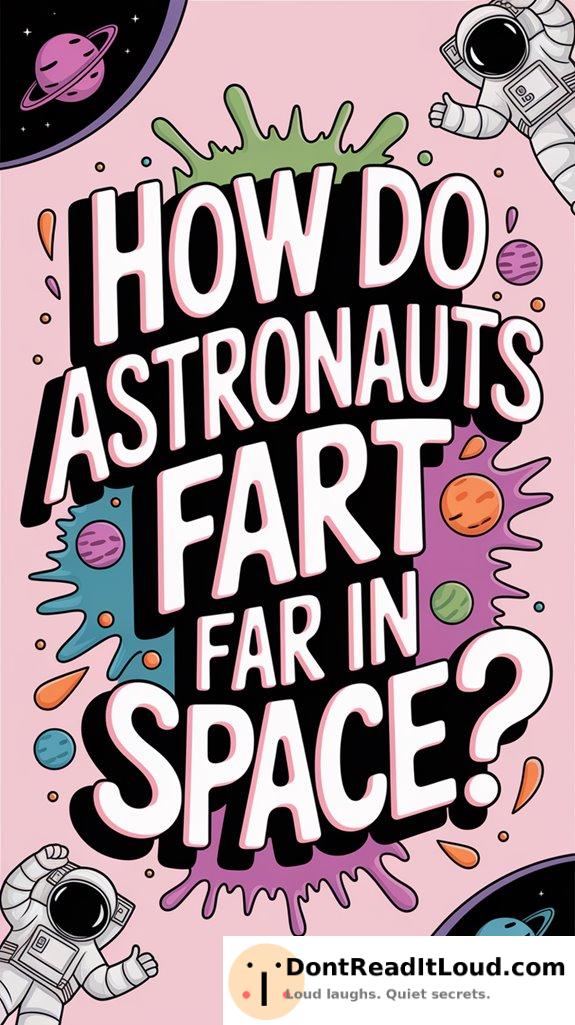
When you fart in space, your body still produces gas, but microgravity changes how it behaves. Without gravity, gas bubbles don’t separate easily from solids or liquids, so they stay mixed in your gut and can cause extra bloating. You might not even notice when you’re about to pass gas! Odors also linger longer because there’s no natural airflow; they rely on special fans and filters instead. This makes passing gas in space more complicated than you’d expect.
The Science of Flatulence: What Happens Inside the Body

While it may appear straightforward, flatulence is the result of intricate digestive processes.
Digestive enzymes in your stomach and small intestine break down most of your food. However, certain fibers aren’t fully digested during this process.
In your large intestine, bacteria feed on these undigested particles and generate gases as a result. As these gases accumulate, your body expels them as flatulence.
Each time you pass gas, it reflects the teamwork between your digestive enzymes and gut bacteria.
Gravity vs. Microgravity: How Space Changes Digestion

On Earth, gravity helps move gases down through your digestive tract, making it easier for your body to handle flatulence.
In space, however, things are different. Microgravity disrupts this process and leads to unexpected changes in digestion. Without gravity, gases and solids mix differently in your gut. Your intestines must work harder to push everything along, and trapped gas can feel more uncomfortable.
Since there’s no clear “up” or “down,” your digestive system must adjust. Even something as simple as farting becomes more complicated in microgravity.
Gas Bubbles in Zero-G: Why Farting Feels Different

When you’re floating in zero gravity, gas bubbles inside your body don’t rise as they do on Earth.
Normally, gravity separates solids, liquids, and gases in your gut, allowing gas to drift upward and escape.
In microgravity, bubbles stay mixed with everything else in your digestive tract.
This change can make you feel bloated or uncertain about when you need to pass gas.
The familiar sensations from Earth don’t apply, so farting feels unusual.
Astronauts need to be careful and stay aware of how their bodies react.
Odor and Air Circulation on the Space Station
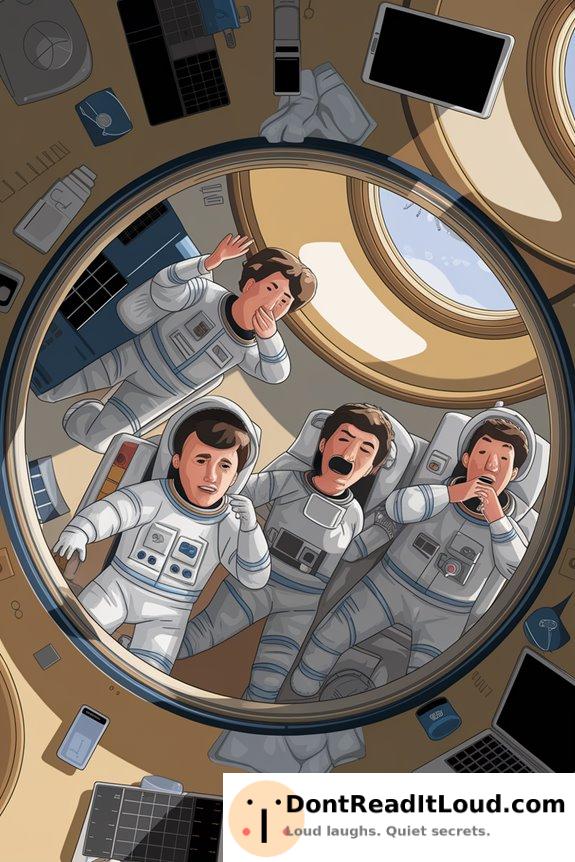
Floating gas bubbles aren’t the only thing that makes farting in space strange—you also have to deal with how smells move around the station.
Without gravity, odors don’t rise and dissipate like they do on Earth; instead, they linger and drift wherever the air currents take them.
That’s why the space station uses constant air circulation and strong filtration systems. Fans push the air along, while filters remove particles and help control smells.
If you let one rip, you can’t just hope the scent will disappear—everyone depends on those systems to keep the air (and your reputation) clean.
Are Farts Dangerous in Spacecraft Environments?
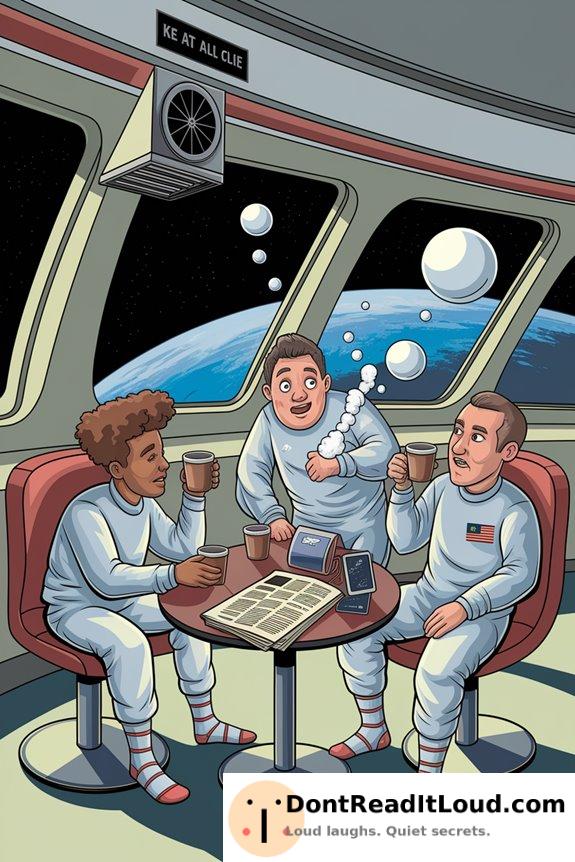
Although it might sound funny, farting in space isn’t just a source of awkwardness—it can actually pose minor risks inside a spacecraft.
In a sealed environment, the gases you release don’t simply disappear; they remain and blend with the cabin air. Without proper containment, these gases—mainly methane and hydrogen sulfide—could accumulate over time.
While concentrations are typically low, sensitive detectors monitor air quality to ensure they never reach unsafe levels. If left unchecked, a buildup of flammable gases could potentially increase the risk of fire or disrupt onboard systems.
Even small bodily functions require careful attention in orbit.
How Astronauts Manage Bodily Functions in Space
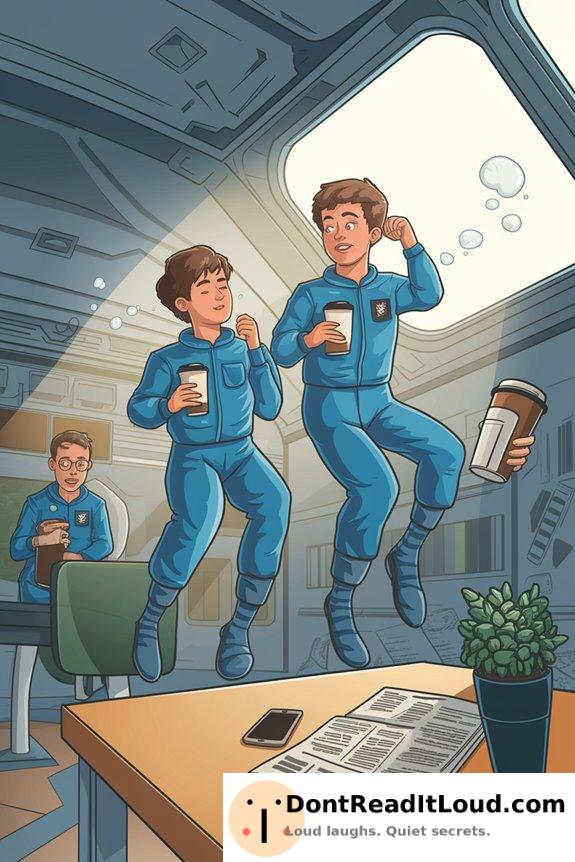
Because microgravity changes everything, astronauts have to adapt even the most basic bodily functions while in orbit.
You can’t just rely on gravity for waste management or hygiene. Special toilets use airflow to move waste into secure containers, keeping it from floating around the cabin. Liquid and solid waste are separated, treated, or stored for return to Earth.
For personal cleanliness, astronauts use rinseless wipes and no-rinse shampoos, since showers aren’t possible. Managing these routines is crucial not only for comfort but also to keep the spacecraft clean, odor-free, and safe for everyone on board.
Funny Stories and Anecdotes From Real Astronauts
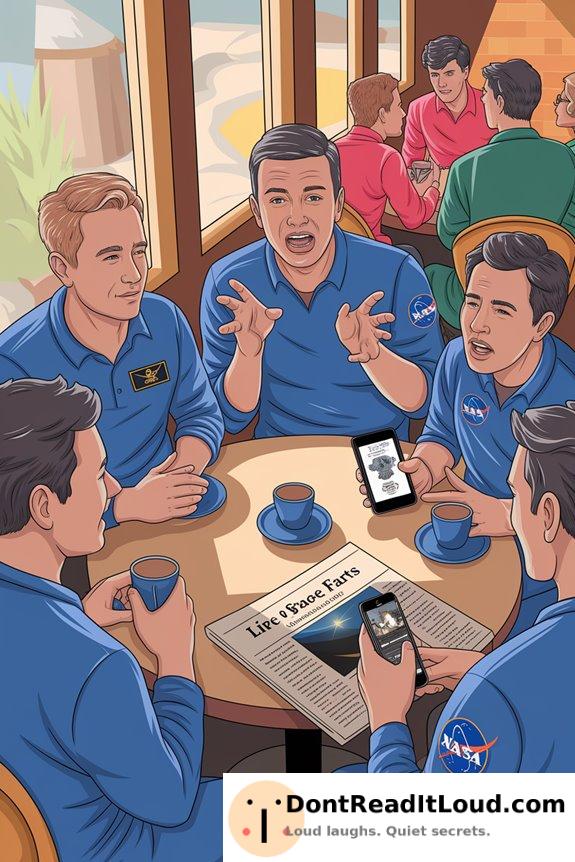
While space travel requires strict discipline, astronauts often find humor in the quirks of daily life aboard the ISS—especially regarding bodily functions.
Astronauts recount stories about unexpected “air currents” sending crewmates drifting or the classic challenge of blaming a fart when escape isn’t possible.
Space humor flourishes in zero gravity, with tales of crew members floating away from their own gas clouds or playfully hunting for the culprit.
These stories are a reminder that, even surrounded by advanced technology, astronauts are still human—sometimes laughing at something as simple as a space fart.
The Future of Space Travel and Human Flatulence
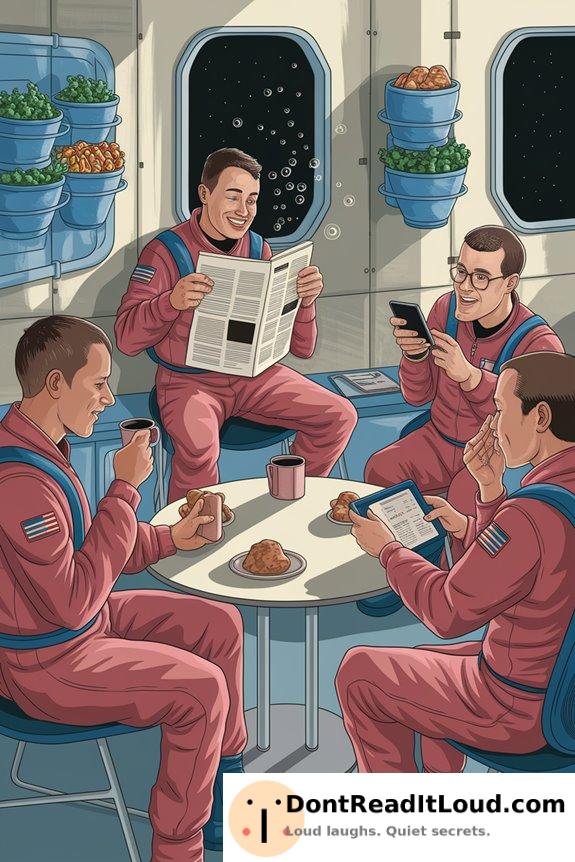
Laughter over space flatulence might lighten the mood on the ISS, but future missions to the Moon, Mars, or beyond will pose new challenges for managing bodily gases.
As astronauts venture farther, maintaining space hygiene becomes even more important. Extended stays in confined habitats make reliable air filtration and odor control systems crucial.
Diets high in fiber and new proteins may increase gas, so managing it’s vital for crew comfort and safety. Scientists are already studying gut microbes in space to better understand these changes.
In the future, even flatulence could influence how space missions are planned.
Conclusion
Now you know—farting in space isn’t just a funny thought; it’s a real part of astronaut life! In microgravity, even something as ordinary as gas can behave in unexpected ways, and those smells don’t simply disappear. Fortunately, astronauts and engineers have developed systems to keep the air fresh and everyone comfortable. As we prepare for future missions, we’ll continue exploring—and laughing about—the unique challenges of living in space.



